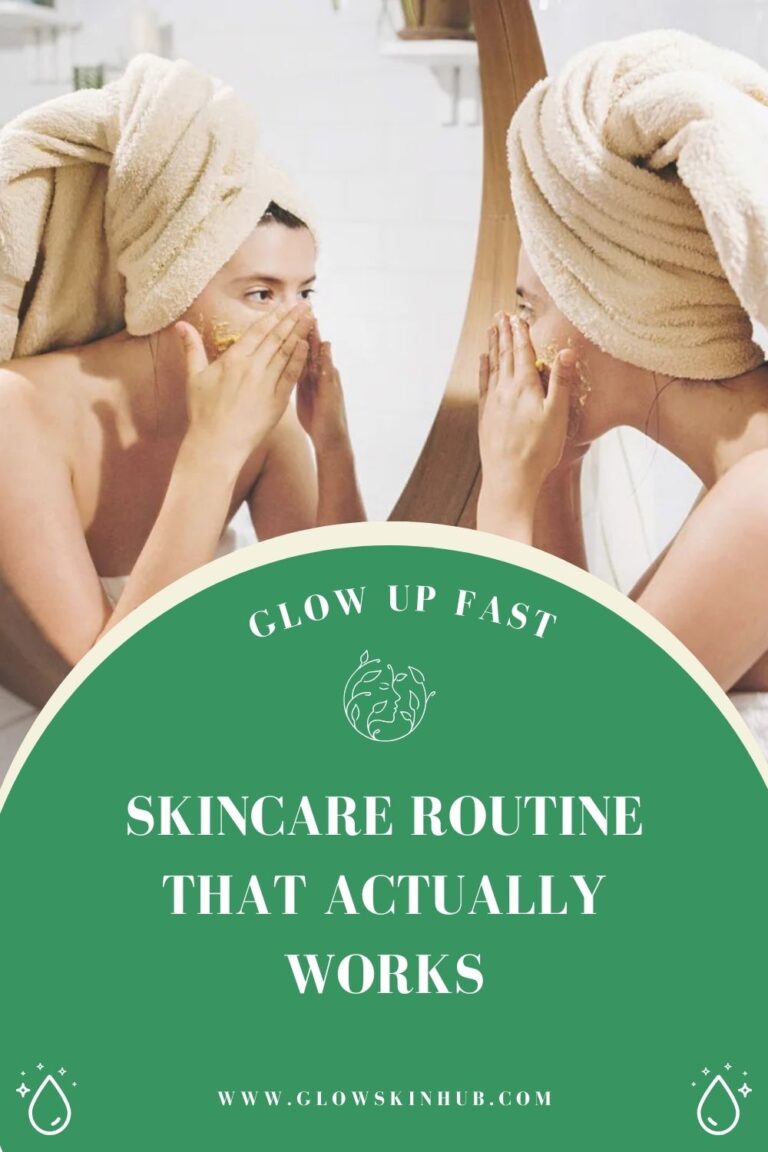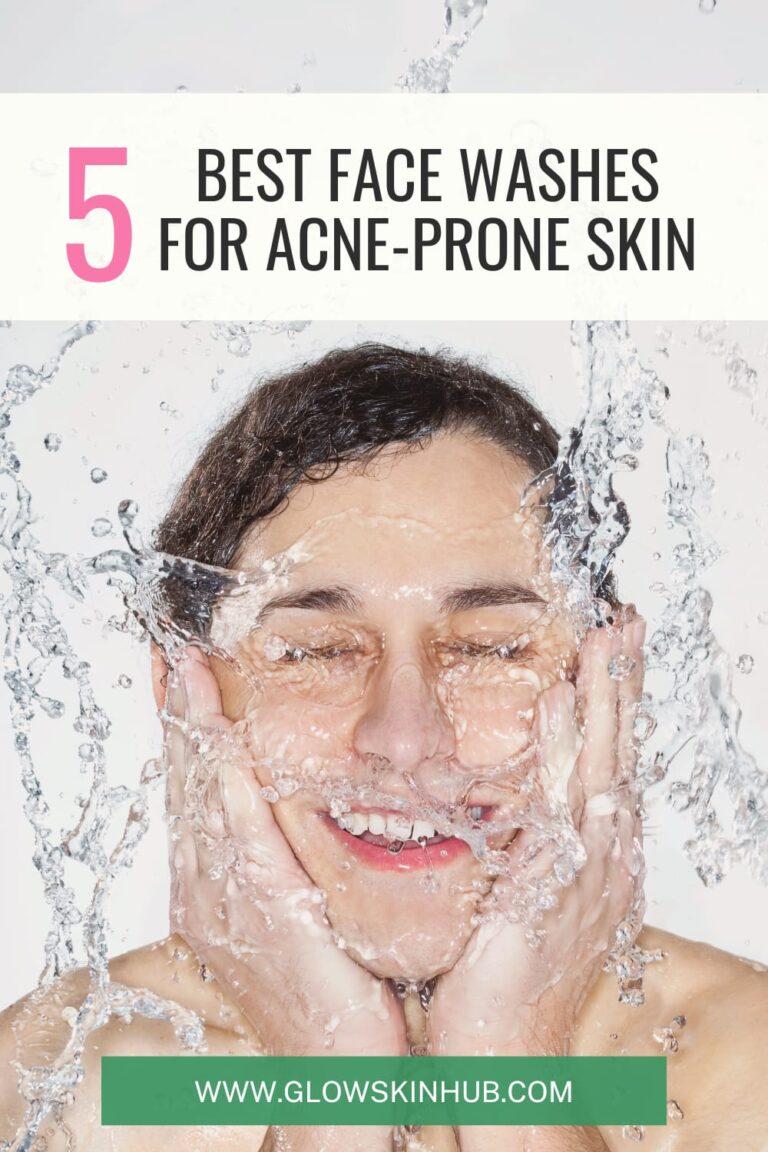At Glowskinhub.com, we believe beauty isn’t just a look—it’s a feeling
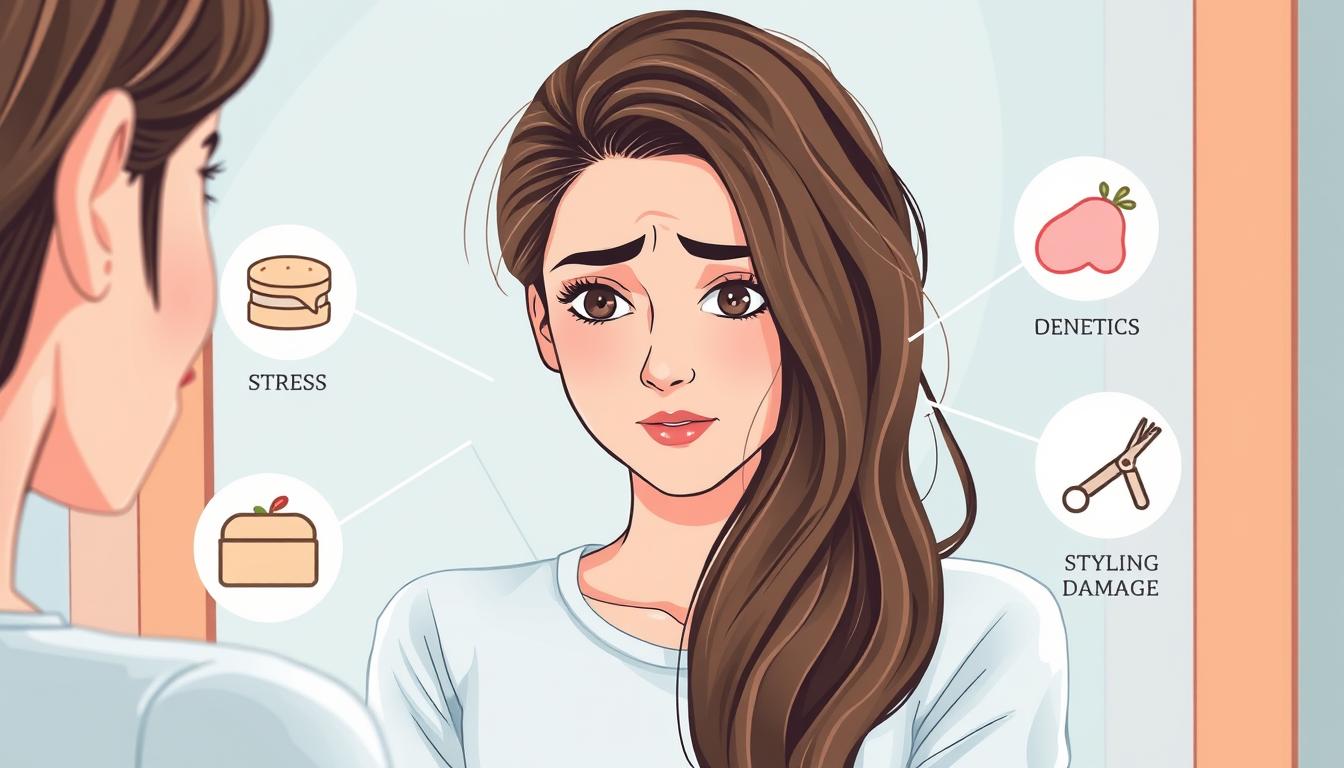
How to Stop Hair Fall in Women Naturally: Remedies & Prevention Tips
Common Causes of Hair Fall in Women
Understanding the root cause of your hair loss is the first step toward finding an effective solution. Women experience hair fall for various reasons, often different from those affecting men.
Hormonal Imbalances
Fluctuations in estrogen and progesterone levels during pregnancy, postpartum, menopause, or due to thyroid disorders can trigger hair loss. Polycystic ovary syndrome (PCOS) can also cause hormonal imbalances leading to thinning hair.
Nutritional Deficiencies
Inadequate intake of iron, zinc, vitamin D, biotin, and protein can weaken hair follicles and disrupt the hair growth cycle. Crash diets or sudden weight loss can also deprive your body of essential nutrients needed for healthy hair.
Stress and Lifestyle Factors
Chronic stress elevates cortisol levels, which can push hair follicles into a resting phase, leading to increased shedding. Poor sleep quality and lack of physical activity can also contribute to hair fall.
Styling Damage and Chemical Treatments
Frequent use of heat styling tools, tight hairstyles, harsh shampoos, and chemical treatments like coloring, perming, or straightening can damage hair follicles and cause breakage.
Not Sure What’s Causing Your Hair Loss?
Track your hair fall patterns and potential triggers in a journal for two weeks. Note changes in diet, stress levels, and Hair Care routines to identify patterns.
Looking for Hair Repair? Check out our top picks now!
Check Best Hair Care Products
Effective Natural Remedies to Stop Hair Fall
Nature offers numerous solutions that can strengthen hair follicles, stimulate growth, and reduce hair fall. These remedies have been used for centuries and many are now backed by scientific research.
DIY Hair Masks for Stronger Roots
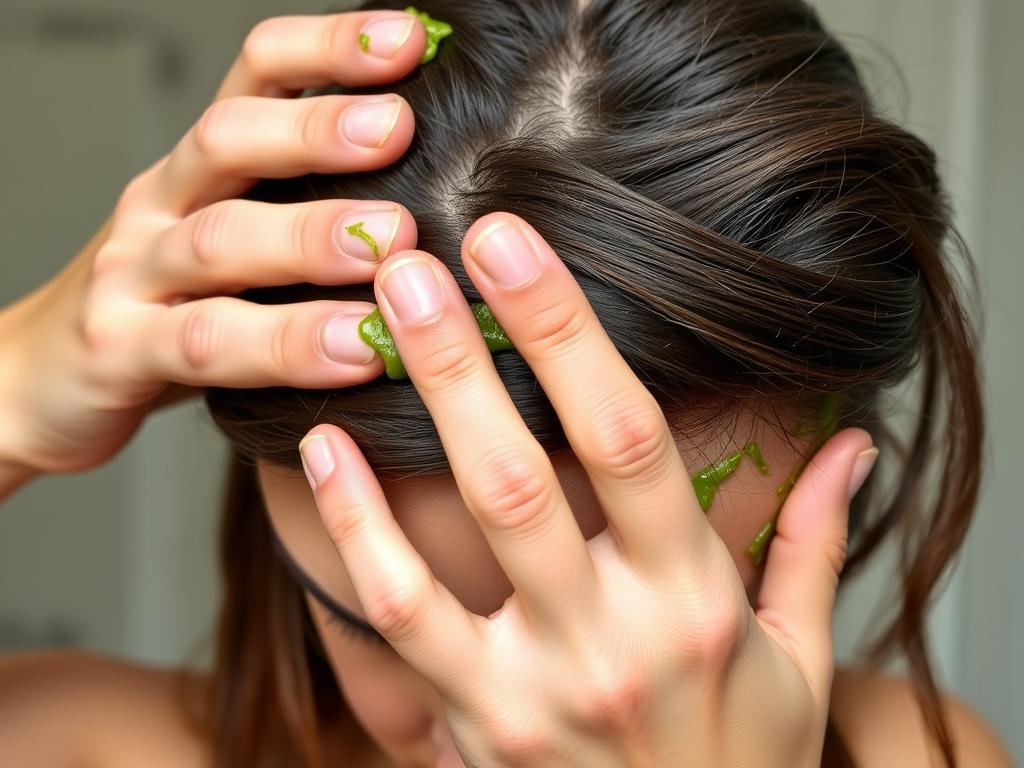
Onion Juice Mask
Onion juice contains sulfur that boosts collagen production for hair growth. A 2014 study found that onion juice effectively treated patchy alopecia areata by improving circulation to hair follicles.
How to use: Blend one onion and strain the juice. Apply directly to your scalp, leave for 15-30 minutes, then wash with a mild shampoo. Use twice weekly for best results.
Looking for Hair Repair? Check out our top picks now!
Check Best Hair Care Products
Aloe Vera Treatment
Aloe vera contains proteolytic enzymes that repair dead Skin cells on the scalp and condition hair. It also helps balance the pH level of the scalp, promoting healthier hair growth.
How to use: Extract fresh aloe vera gel from a leaf, apply it directly to your scalp, and massage gently. Leave for 30-45 minutes before rinsing with lukewarm water. Repeat 2-3 times weekly.
Looking for Hair Repair? Check out our top picks now!
Check Best Hair Care Products
Coconut Oil and Fenugreek Mask
Coconut oil penetrates the hair shaft to prevent protein loss, while fenugreek seeds are rich in proteins and nicotinic acid that strengthen hair follicles and stimulate growth.
How to use: Soak 2 tablespoons of fenugreek seeds overnight, grind into a paste, and mix with 2 tablespoons of coconut oil. Apply to scalp and hair, leave for 30 minutes, then rinse thoroughly.
Looking for Hair Repair? Check out our top picks now!
Check Best Hair Care Products
Essential Oils for Hair Growth
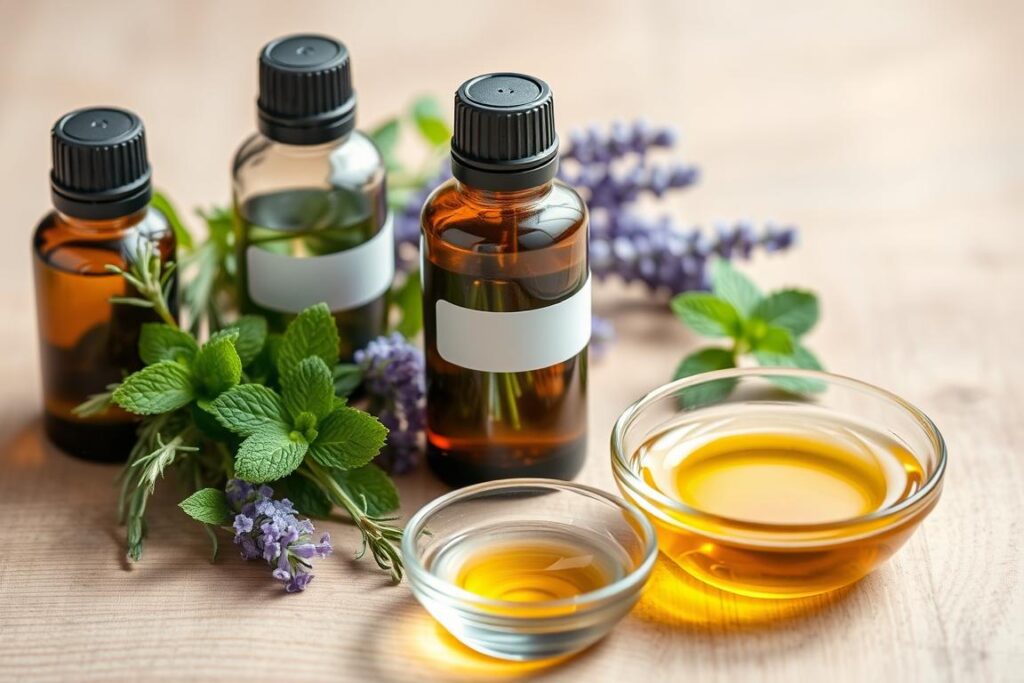
Rosemary Oil
A 2015 study found rosemary oil to be as effective as minoxidil (a conventional hair loss treatment) for androgenetic alopecia, with fewer scalp itching side effects.
How to use: Mix 10 drops of rosemary oil with 2 tablespoons of carrier oil (jojoba or coconut). Massage into scalp, leave for at least 30 minutes or overnight, then wash as usual.
Lavender Oil
Lavender oil has antimicrobial properties that help keep the scalp healthy and can improve blood circulation to hair follicles, promoting growth.
How to use: Add 8-10 drops of lavender oil to 2 tablespoons of coconut or olive oil. Apply to scalp with a gentle massage, leave for 20 minutes, then rinse thoroughly.
Try This Essential Oil Blend
Combine 3 drops each of rosemary, lavender, and peppermint oils with 2 tablespoons of jojoba oil for a powerful hair-strengthening treatment.
Looking for Hair Repair? Check out our top picks now!
Check Best Hair Care Products
Herbal Treatments
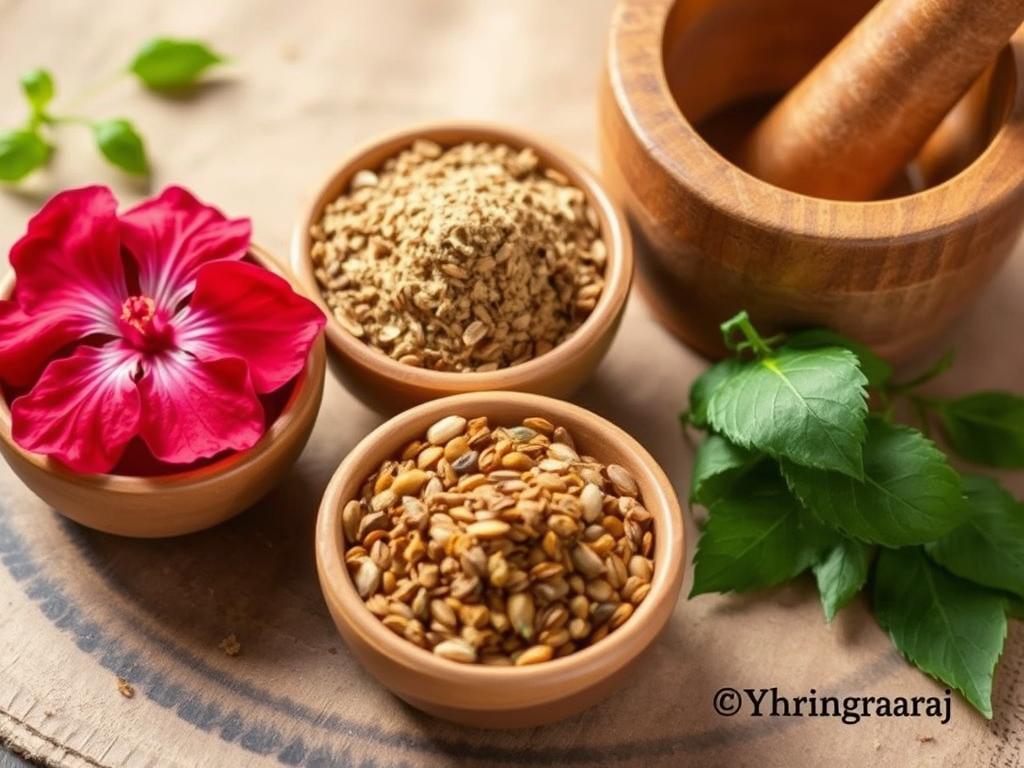
Hibiscus
Hibiscus flowers and leaves contain amino acids, vitamins, and antioxidants that nourish hair follicles and prevent premature graying and hair fall.
How to use: Grind fresh hibiscus flowers and leaves into a paste, mix with coconut oil, and apply to scalp and hair. Leave for 30 minutes before washing.
Amla (Indian Gooseberry)
Rich in vitamin C and antioxidants, amla strengthens hair follicles, reduces premature graying, and stimulates healthy hair growth.
How to use: Mix amla powder with coconut oil to form a paste. Apply to scalp, leave for 30 minutes, then rinse thoroughly. Alternatively, consume amla juice daily.
Bhringraj
Known as the “king of herbs” for Hair Care in Ayurveda, bhringraj rejuvenates hair follicles and promotes darker, thicker hair growth.
How to use: Make a paste with bhringraj powder and water. Apply to scalp, leave for 20-30 minutes, then rinse. Use weekly for best results.
Lifestyle Changes to Reduce Hair Fall
Beyond topical treatments, certain lifestyle modifications can significantly impact hair health and reduce hair fall over time.

Stress Management
Chronic stress elevates cortisol levels, which can disrupt the hair growth cycle and push more follicles into the resting (telogen) phase, leading to increased shedding.
Effective Stress-Reduction Techniques:
- Practice daily meditation or deep breathing for 10-15 minutes
- Engage in regular physical activity like yoga, walking, or swimming
- Maintain a consistent sleep schedule with 7-8 hours of quality rest
- Try journaling to process emotions and identify stress triggers
- Consider mindfulness apps or guided relaxation techniques
Quick Stress Relief: When feeling overwhelmed, try the 4-7-8 breathing technique: Inhale for 4 seconds, hold for 7 seconds, and exhale for 8 seconds. Repeat 4 times to activate your parasympathetic nervous system and reduce stress hormones.
Sleep Hygiene
Quality sleep is essential for cell regeneration and hormone regulation, both crucial for healthy hair growth. Poor sleep can disrupt growth hormone production and increase stress hormones.
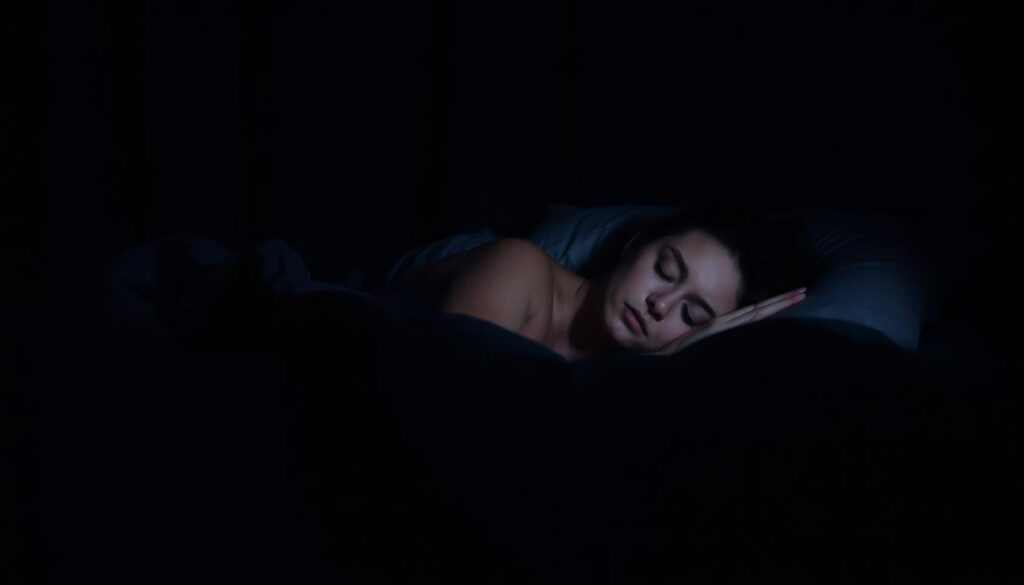
Sleep Hygiene Tips for Better Hair Health:
- Maintain a consistent sleep schedule, even on weekends
- Create a dark, cool, and quiet sleeping environment
- Avoid screens at least 1 hour before bedtime
- Consider using a silk or satin pillowcase to reduce friction and breakage
- Try relaxing bedtime rituals like reading or taking a warm bath
Scalp Care Routine
A healthy scalp creates the optimal environment for hair growth. Regular scalp care can remove buildup, improve circulation, and nourish hair follicles.

Weekly Scalp Care Routine:
- Exfoliate: Once weekly, use a gentle scalp scrub or mix brown sugar with coconut oil to remove dead Skin cells and product buildup.
- Massage: Perform a 4-5 minute scalp massage daily using fingertips (not nails) in small circular motions to stimulate blood flow.
- Oil treatment: Apply a nourishing oil like coconut, almond, or jojoba to your scalp 1-2 times weekly, leaving it on for at least 30 minutes before washing.
- Gentle cleansing: Use sulfate-free, pH-balanced shampoos that clean without stripping natural oils.
Dietary Changes to Promote Hair Growth
What you eat directly impacts your hair health. A balanced diet rich in specific nutrients can strengthen hair follicles and promote growth from within.
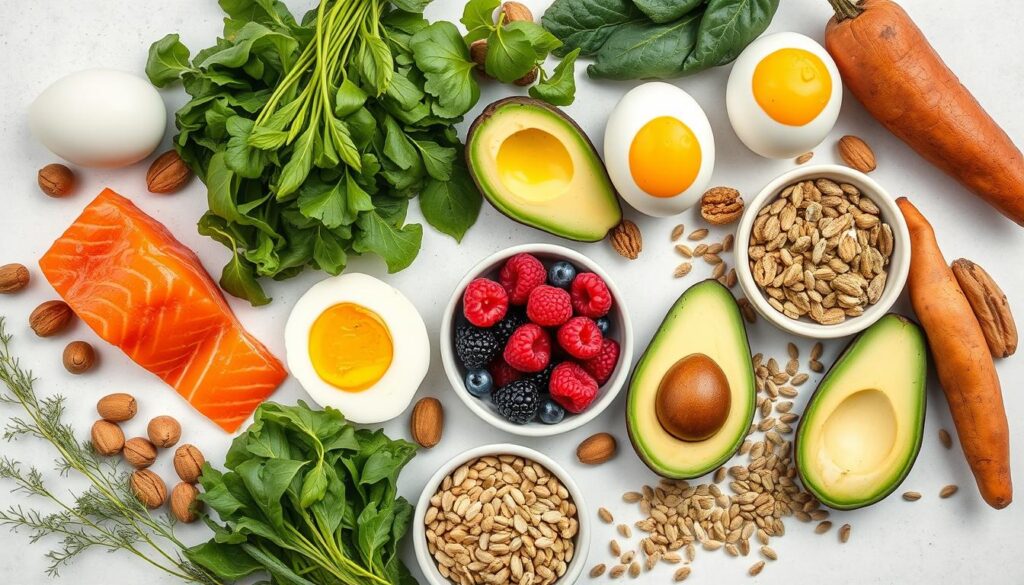
Essential Vitamins and Minerals
| Nutrient | Benefits for Hair | Food Sources |
| Biotin (Vitamin B7) | Strengthens hair structure and reduces breakage | Eggs, nuts, seeds, sweet potatoes, avocados |
| Iron | Carries oxygen to hair follicles, essential for growth | Spinach, lentils, tofu, pumpkin seeds, lean red meat |
| Zinc | Supports hair tissue growth and repair | Oysters, pumpkin seeds, chickpeas, cashews |
| Vitamin D | Creates new hair follicles and maintains hair cycle | Fatty fish, egg yolks, mushrooms, fortified foods |
| Vitamin E | Protects cells from oxidative stress | Almonds, sunflower seeds, spinach, avocados |
| Omega-3 Fatty Acids | Nourish hair follicles and reduce inflammation | Salmon, walnuts, flaxseeds, chia seeds |
Hydration and Hair Health
Proper hydration is crucial for delivering nutrients to hair follicles and maintaining scalp health. Dehydration can lead to dry, brittle hair that’s prone to breakage.

Hydration Tips for Healthy Hair:
- Aim for at least 8-10 glasses of water daily
- Include hydrating foods like cucumbers, watermelon, and oranges
- Limit dehydrating beverages like alcohol and caffeine
- Consider herbal teas like nettle or horsetail that support hair health
Superfoods for Hair Growth
Berries
Rich in antioxidants and vitamin C, berries protect hair follicles from damage and help produce collagen that strengthens hair.
Fatty Fish
Salmon, mackerel, and sardines provide omega-3 fatty acids, protein, and vitamin D that reduce inflammation and promote hair growth.
Leafy Greens
Spinach, kale, and other dark leafy greens contain iron, vitamins A and C, and folate that support a healthy scalp and hair growth.
Boost Your Hair Health From Within
Create a weekly meal plan incorporating these hair-healthy foods to provide your follicles with essential nutrients.
Prevention Tips to Minimize Hair Fall
Preventing hair fall is often easier than treating it. These preventive measures can help maintain healthy hair and reduce future thinning.
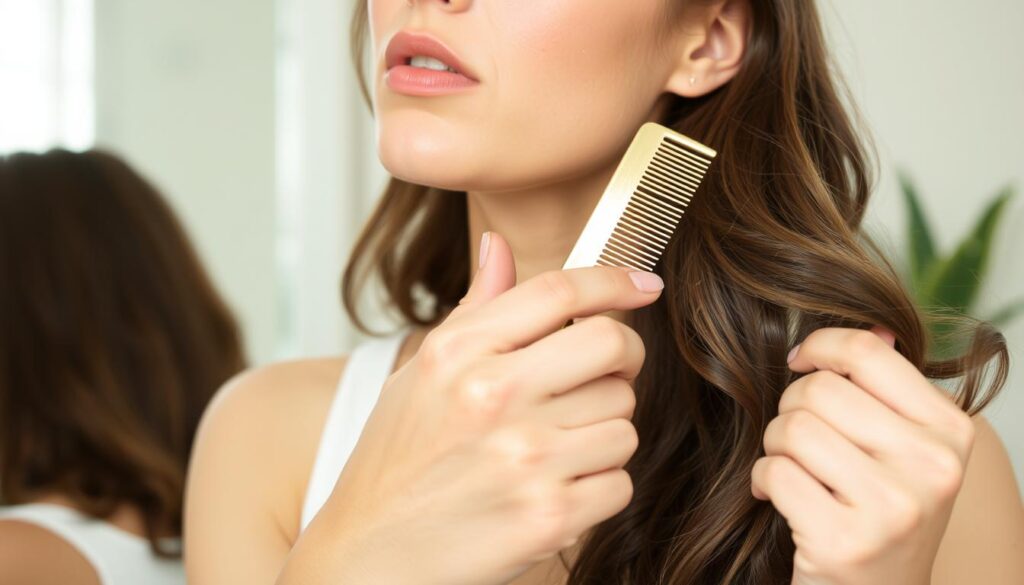
Avoid Harsh Chemical Treatments
Chemical processes like coloring, perming, and straightening can weaken hair structure and damage follicles, leading to increased breakage and hair fall.
Safer Alternatives:
- Use henna or plant-based dyes instead of chemical colors
- Try heat-free styling methods like braiding damp hair for waves
- Extend time between chemical treatments to at least 8-12 weeks
- Always use heat protectant products before styling
- Consider semi-permanent or demi-permanent colors instead of permanent dyes
Warning: If you notice increased hair fall after a chemical treatment, stop using the product immediately and consult a dermatologist. Some reactions can cause permanent damage if not addressed promptly.
Minimize Heat Styling
Frequent use of hot tools like blow dryers, straighteners, and curling irons can damage the hair cuticle, leading to dryness, breakage, and hair fall.
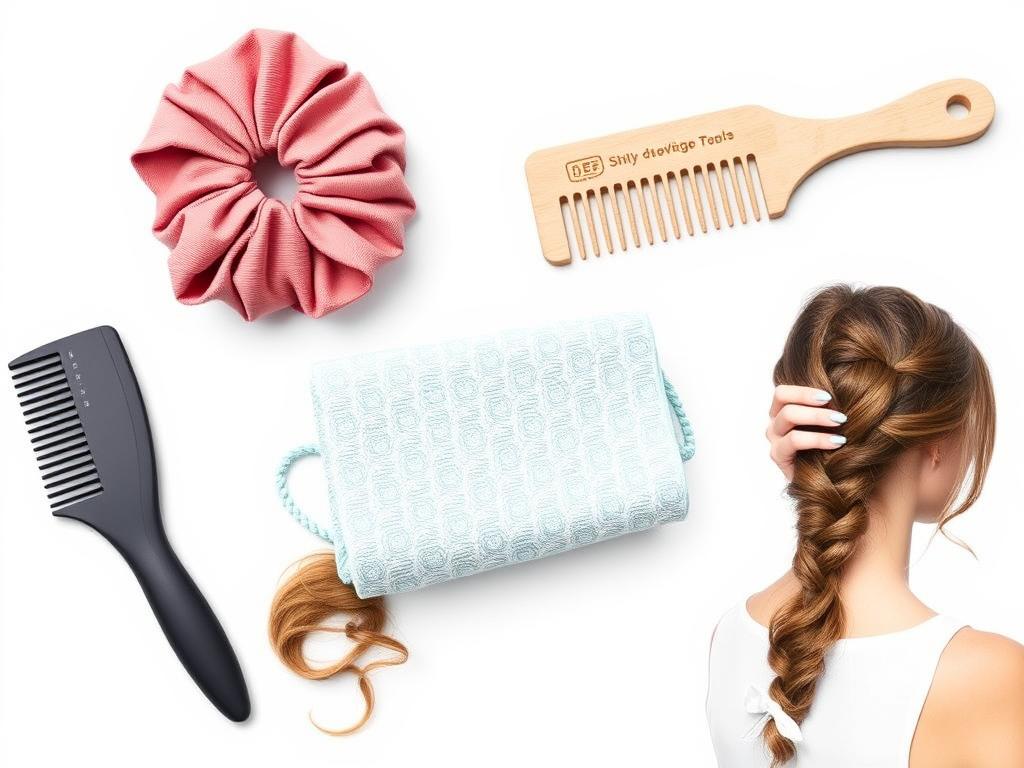
Heat-Free Styling Tips:
- Allow hair to air-dry whenever possible
- Use the cool setting on your hair dryer
- Try overnight braids or twists for waves
- Use foam or fabric hair rollers instead of hot rollers
- Limit heat styling to once or twice a week maximum
Looking for Hair Repair? Check out our top picks now!
Check Best Hair Care Products
Avoid Tight Hairstyles
Hairstyles that pull tightly on the hair roots, such as ponytails, buns, braids, and extensions, can cause traction alopecia, a form of hair loss due to constant tension.
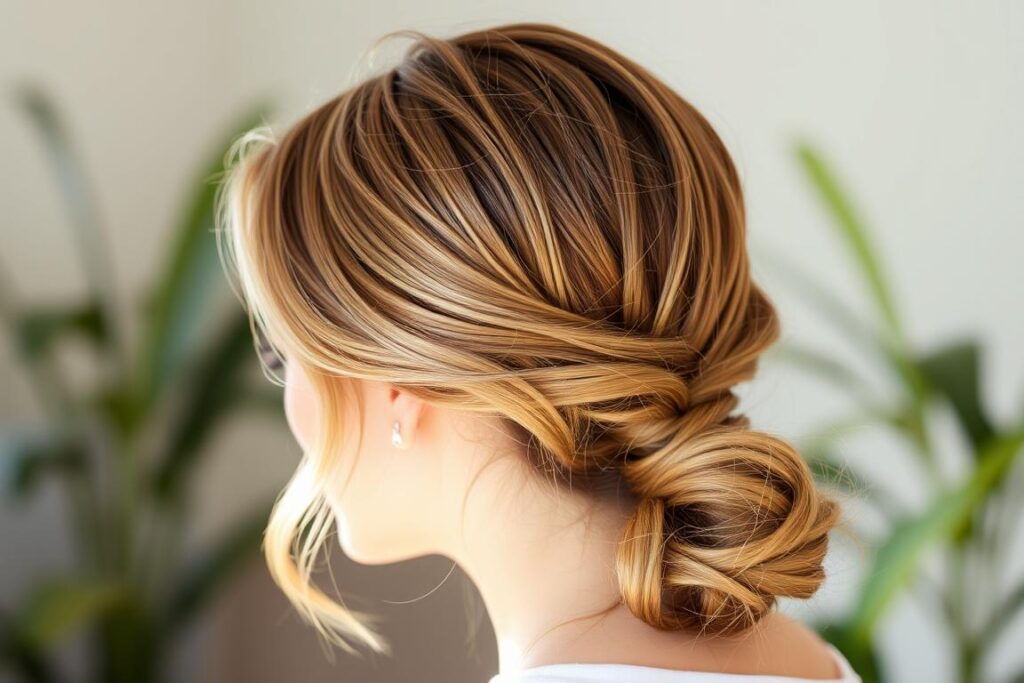
Hair-Friendly Styles
- Loose buns secured with silk scrunchies
- Soft braids that don’t pull at the roots
- Hair down or loosely styled
- Low ponytails with fabric-covered elastics
- Changing hairstyle position regularly
Styles to Avoid
- Tight ponytails or buns
- Cornrows or tight braids
- Extensions or weaves that pull on natural hair
- Styles secured with rubber bands
- Any style that causes scalp pain or headaches
Frequently Asked Questions About Hair Fall
Many women have similar questions about hair fall and natural treatments. Here are answers to some of the most common concerns.

Can hormonal hair loss be reversed naturally?
Hormonal hair loss can often be improved with natural methods, though results vary based on the underlying cause. Adaptogenic herbs like ashwagandha and saw palmetto may help balance hormones naturally. Diet changes to include healthy fats and proteins can support hormone production. However, severe hormonal imbalances may require medical intervention alongside natural remedies.
How long do natural remedies take to show results?
Natural remedies typically take 3-6 months to show noticeable results due to the hair growth cycle. You may notice reduced shedding within 4-8 weeks, but new growth takes longer to become visible. Consistency is key—most natural treatments require regular application over time to be effective. Take progress photos monthly to better track subtle improvements.
Is postpartum hair loss permanent?
Postpartum hair loss is typically temporary and resolves on its own within 6-12 months after childbirth. This type of shedding (telogen effluvium) occurs due to hormonal changes after pregnancy. Natural remedies like scalp massage, nutritional support, and gentle Hair Care can help speed up recovery. If hair loss continues beyond 12 months postpartum, consult a healthcare provider to rule out other causes.
Can diet alone stop hair fall?
Diet plays a crucial role in hair health, but may not be sufficient as the sole treatment for hair fall, especially if caused by genetic factors or medical conditions. However, correcting nutritional deficiencies through diet can significantly reduce hair fall caused by poor nutrition. A balanced diet rich in proteins, iron, zinc, biotin, and omega-3 fatty acids provides the building blocks for healthy hair growth and can complement other natural treatments.
When should I see a doctor about hair fall?
Consult a healthcare provider if you experience sudden or severe hair loss, bald patches, scalp irritation or pain, or if hair fall is accompanied by other symptoms like fatigue or weight changes. Also seek medical advice if natural remedies show no improvement after 3-6 months of consistent use, or if your hair loss is causing significant emotional distress. A dermatologist can help identify underlying medical conditions that may require specific treatment.
Create Your Personalized Hair Care Plan
Combine the natural remedies, lifestyle changes, and dietary adjustments from this guide to create a customized routine that addresses your specific hair concerns.
Conclusion: Your Path to Healthier Hair
Addressing hair fall naturally requires patience, consistency, and a holistic approach. By combining topical treatments with lifestyle changes and proper nutrition, you can strengthen your hair follicles, reduce shedding, and promote healthy growth. Remember that results take time—the hair growth cycle spans several months, so give your chosen remedies at least 3-6 months of consistent use before evaluating their effectiveness.
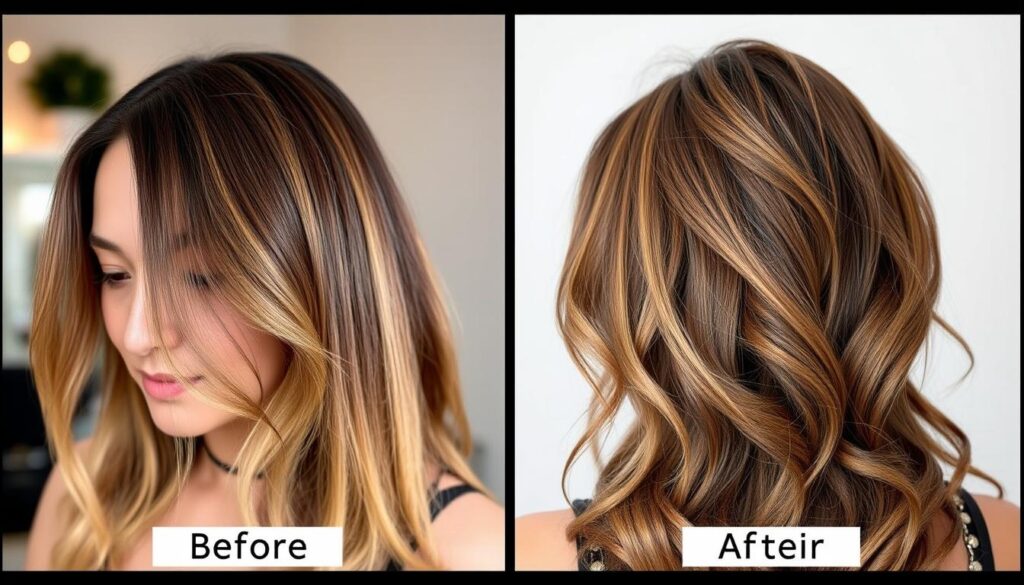
While natural remedies work for many women, persistent or severe hair loss may indicate an underlying medical condition that requires professional attention. Don’t hesitate to consult a dermatologist or trichologist if your hair fall concerns continue despite trying these natural approaches. Your journey to healthier hair is unique, and finding the right combination of treatments for your specific needs is key to success.
“The health of your hair reflects the health of your body. Nurturing both from the inside out creates the foundation for strong, beautiful hair that grows naturally.”

